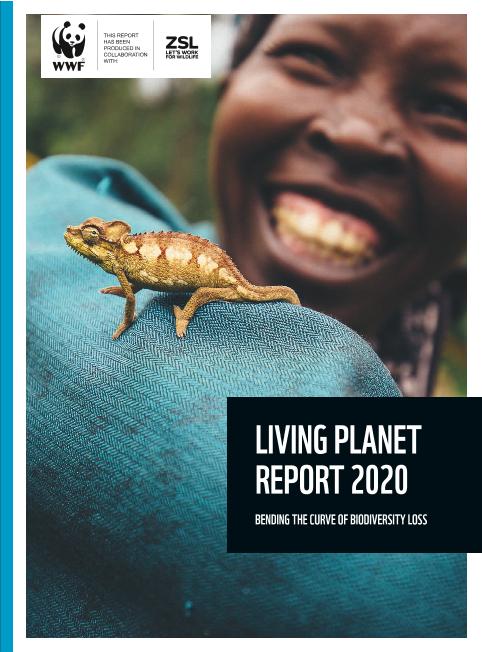Mostrar el registro sencillo del ítem
dc.contributor.author
Martín López, Berta

dc.contributor.author
Díaz, Sandra Myrna

dc.contributor.other
World Wildlife Foundation
dc.date.available
2023-12-11T17:30:09Z
dc.date.issued
2020
dc.identifier.citation
Martín López, Berta; Díaz, Sandra Myrna; A paradigm shift in the way we assess nature; WWF International; 1; -; 2020; 56
dc.identifier.isbn
978-2-940529-99-5
dc.identifier.uri
http://hdl.handle.net/11336/219849
dc.description.abstract
Nature’s Contributions to People refers to all the contributions,both positive and negative, that nature makes to people’s quality oflife 1. Building on the ecosystem service concept popularised by theMillennium Ecosystem Assessment 95, the Nature’s Contributionsto People concept includes a wide range of descriptions of humandependence on nature, such as ecosystem goods and servicesand nature’s gifts. It recognises the central role that culture playsin defining all links between people and nature. It also elevates,emphasises and operationalises the role of indigenous andlocal knowledge 1, 100.Until recently, the conceptualisation of, and practical work on,ecosystem services have focused on assessing and valuing thoseservice flows with biophysical and economic approaches comingfrom natural sciences and economics respectively. This approachhas largely failed to engage a range of perspectives from socialsciences, humanities 96, or those of local actors including Indigenouspeoples and local communities 1.The Nature’s Contributions to People approach explicitly recognisesthat a range of views of nature exist. At one extreme, humans andnature are viewed as distinct; at the other, humans and nonhuman entities are interwoven in deep relationships of kinship andreciprocal obligations 97, 98. It uses two lenses to assess how peoplerelate to nature: generalising and context-specific perspectives.
dc.format
application/pdf
dc.language.iso
eng
dc.publisher
WWF International
dc.rights
info:eu-repo/semantics/openAccess
dc.rights.uri
https://creativecommons.org/licenses/by-nc-sa/2.5/ar/
dc.subject
Biosdiversity
dc.subject
Global environmental change
dc.subject
Ecosystem deterioration
dc.subject
Living planet index
dc.subject.classification
Ecología

dc.subject.classification
Ciencias Biológicas

dc.subject.classification
CIENCIAS NATURALES Y EXACTAS

dc.title
A paradigm shift in the way we assess nature
dc.type
info:eu-repo/semantics/publishedVersion
dc.type
info:eu-repo/semantics/bookPart
dc.type
info:ar-repo/semantics/parte de libro
dc.date.updated
2023-10-31T14:21:55Z
dc.journal.volume
1
dc.journal.number
-
dc.journal.pagination
56
dc.journal.pais
Suiza

dc.journal.ciudad
Gland
dc.description.fil
Fil: Martín López, Berta. Leuphana University; Alemania
dc.description.fil
Fil: Díaz, Sandra Myrna. Consejo Nacional de Investigaciones Científicas y Técnicas. Centro Científico Tecnológico Conicet - Córdoba. Instituto Multidisciplinario de Biología Vegetal. Universidad Nacional de Córdoba. Facultad de Ciencias Exactas Físicas y Naturales. Instituto Multidisciplinario de Biología Vegetal; Argentina
dc.relation.alternativeid
info:eu-repo/semantics/altIdentifier/url/https://files.worldwildlife.org/wwfcmsprod/files/Publication/file/279c656a32_ENGLISH_FULL.pdf?_ga=2.86965213.497037491.1681139493-390973892.1681139492
dc.conicet.paginas
83
dc.source.titulo
WWF Living Planet Report
Archivos asociados
